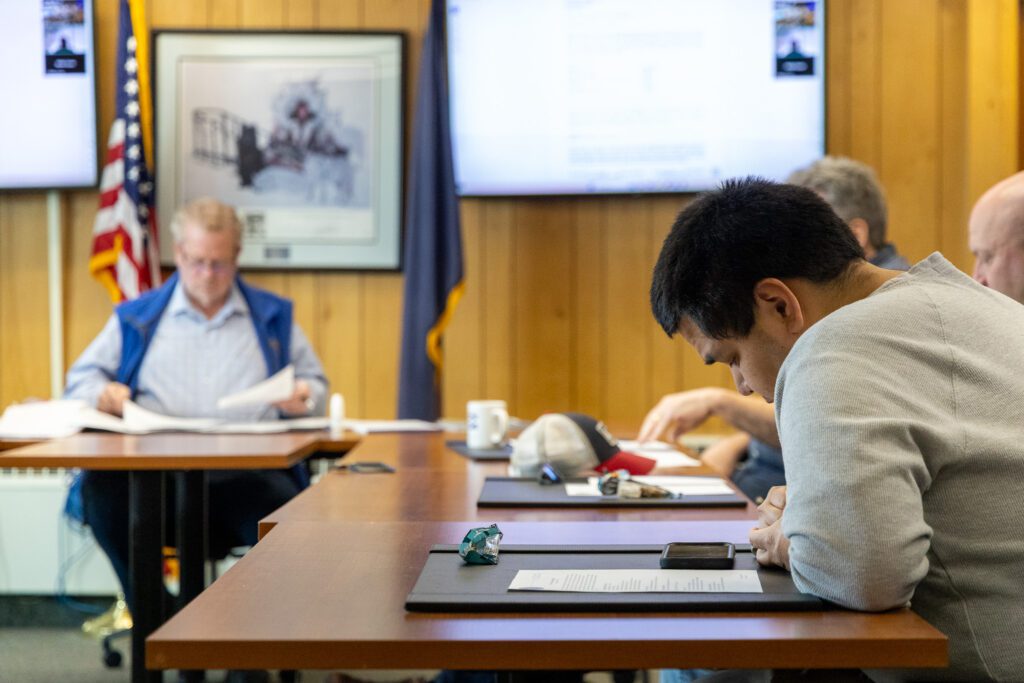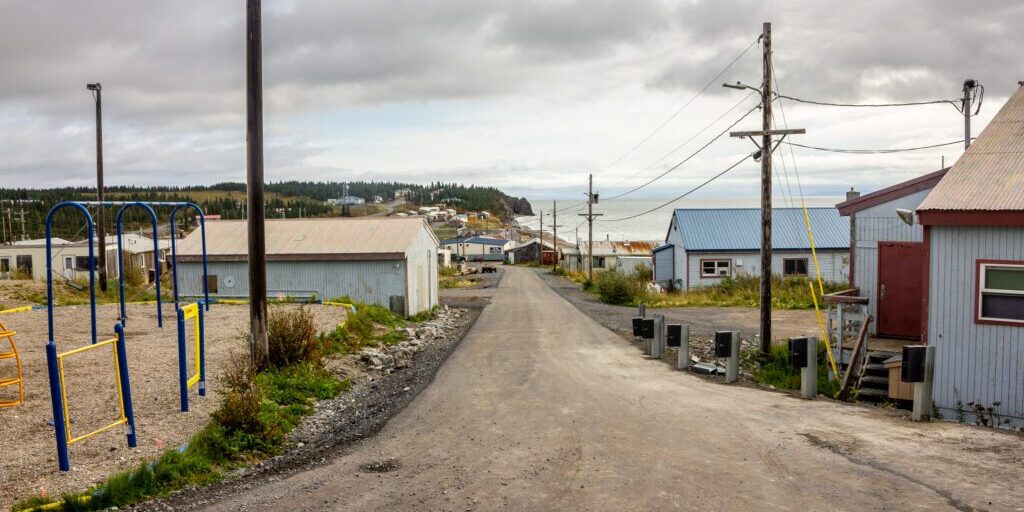Youth in Elim are starting to trade in their bikes for scooters and roller-skates now that they have paved roads to ride on. Through a $12-million project funded by Kawerak Inc., the community of Elim now has approximately three miles of paved streets throughout town.
KNOM’s Davis Hovey attended the ribbon-cutting ceremony to open the new road on Friday and has this report:

“I just want to congratulate you for choosing asphalt, because it helps in your respiratory problems when it comes to health, and your food, food security.”
That was Kawerak’s Board Chairman Frank Katchatag praising Elim for choosing to pave their roads with a base of foamed asphalt along with hot-mix asphalt on top. Katchatag is from Unalakleet, where he says his community’s paved roads have cut down on residents’ respiratory issues.

CEO and President of Kawerak, Melanie Bahnke, spoke to several Elim residents during the official unveiling of the new community streets on Friday.
“Just talking to some local people here, they were already talking about how their quality of life has improved. Children are able to learn how to ride their bikes quicker, and I talked to an elder who said his son rollerblades. And people who rely on their subsistence food don’t have to worry about dust, and of course, people that have respiratory issues are really going to benefit from this. So, I’m really grateful that we are able to see paved roads in Elim.”
Besides keeping dust down and allowing kids to try out new wheels, the paved road project comes with extra benefits. According to Kawerak, the Elim Community Streets Project improved drainage systems, repaired Elim’s sanitary sewer main line, and provided for eight new lots in the Shelby Subdivision to have access to piped water and sewer.

Tumet Industries LLC, which is jointly owned by Kawerak and the Native Villages of the Bering Strait Region, completed construction for the road project earlier this month (August) with some help from Elim residents.
“We had 53 employees on this project that Tumet employed, 47 of which were local tribal members. Out of 53, that’s 89% local hire.”
Aaron Burmeister is the general manager of Tumet. During a celebratory lunch in the Elim school cafeteria following the ribbon-cutting, Burmeister spoke about how the construction crew also helped the community reinforce their seawall, while completing the road project.
“The project and the community as a whole was really tested by a big storm last week that brought in southwest winds, increased the water level eight feet here, eroded the Moses Point Road, as well as some erosion on Front Street here in Elim. It was a scramble, but we were able to procure a barge and run down to our quarry in St. Michael’s and haul a load of class-2 and class-3 rock here to provide erosion control for the future to prevent those roads from washing out.”
According to lifelong resident Judith Daniels, at least once a year around the fall season, Elim gets hit by a major storm that erodes their shores and can cause flooding on a section of the main road. Daniels says a few families living on Front Street have been warned to evacuate their homes during some of these storms.
She says Tumet did an awesome job strengthening the existing seawall, and she’s eager to see how it handles the next year of storms.
Bahnke was also impressed with the finished project in Elim and remarked on the significance of this decades-long endeavor.
“It’s just another example of how, when we have the resources and are provided the opportunity to do things for ourselves, we can improve the quality of life for people in our region.”
According to Kawerak, the asphalt-paved road has a 30-year life expectancy. With potential support from the Transportation Program and training for local operators, the City of Elim will continue to own and maintain the long stretch of smooth streets for years to come.
Image at top: Looking down a road in Elim, Alaska, August 16, 2019. Photo: Davis Hovey, KNOM.




